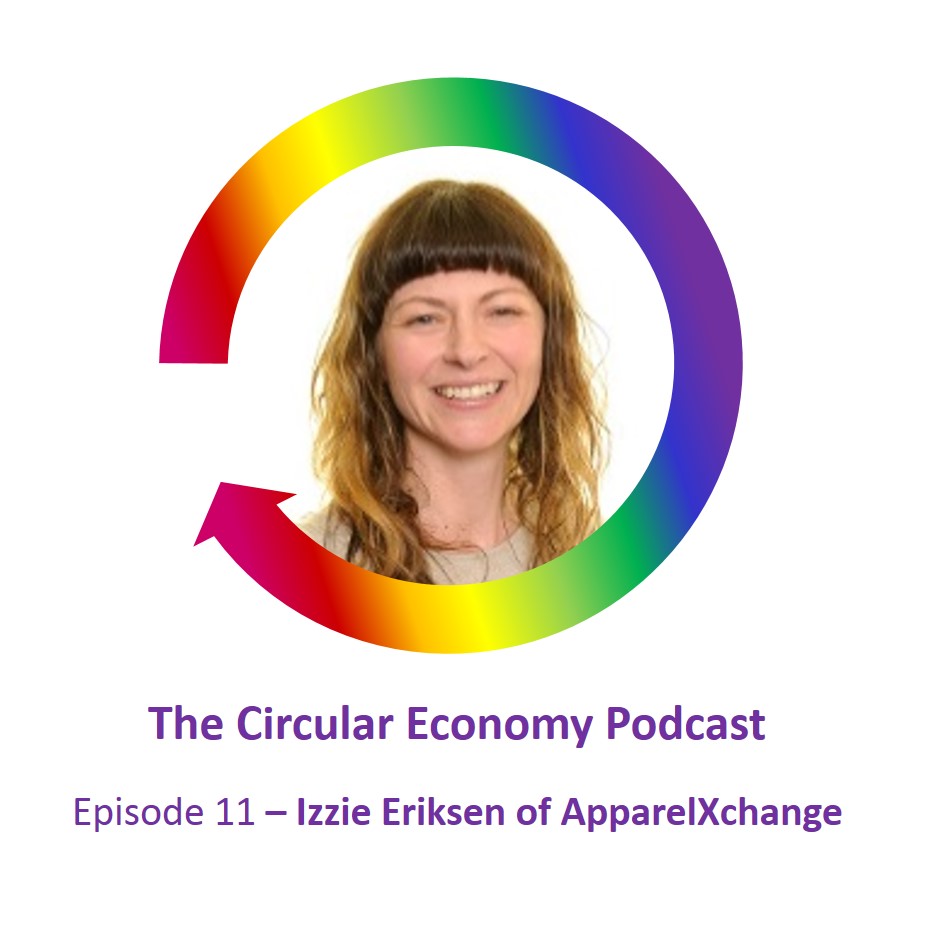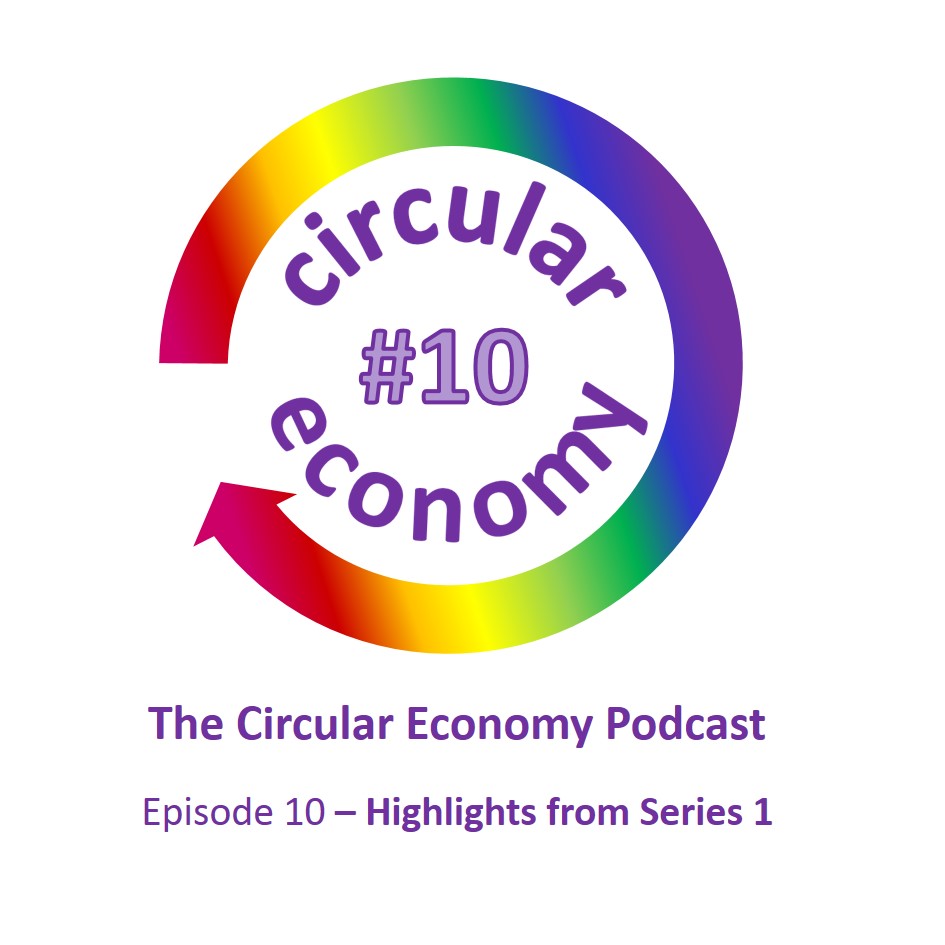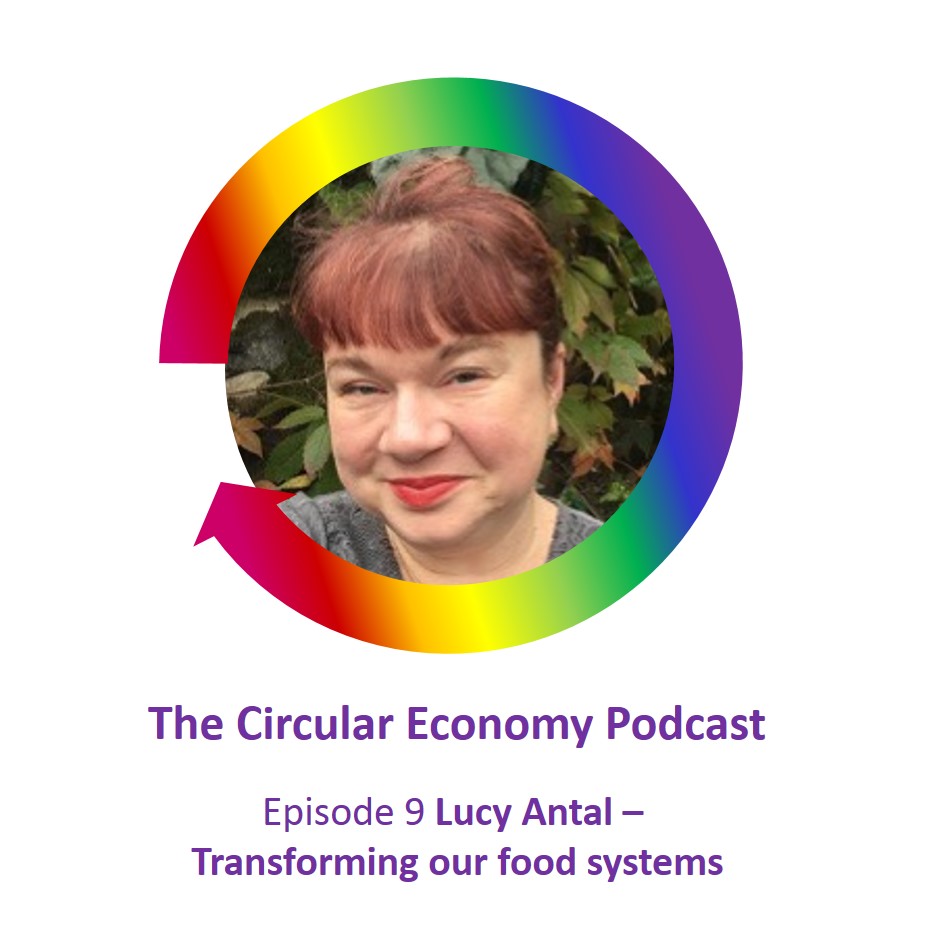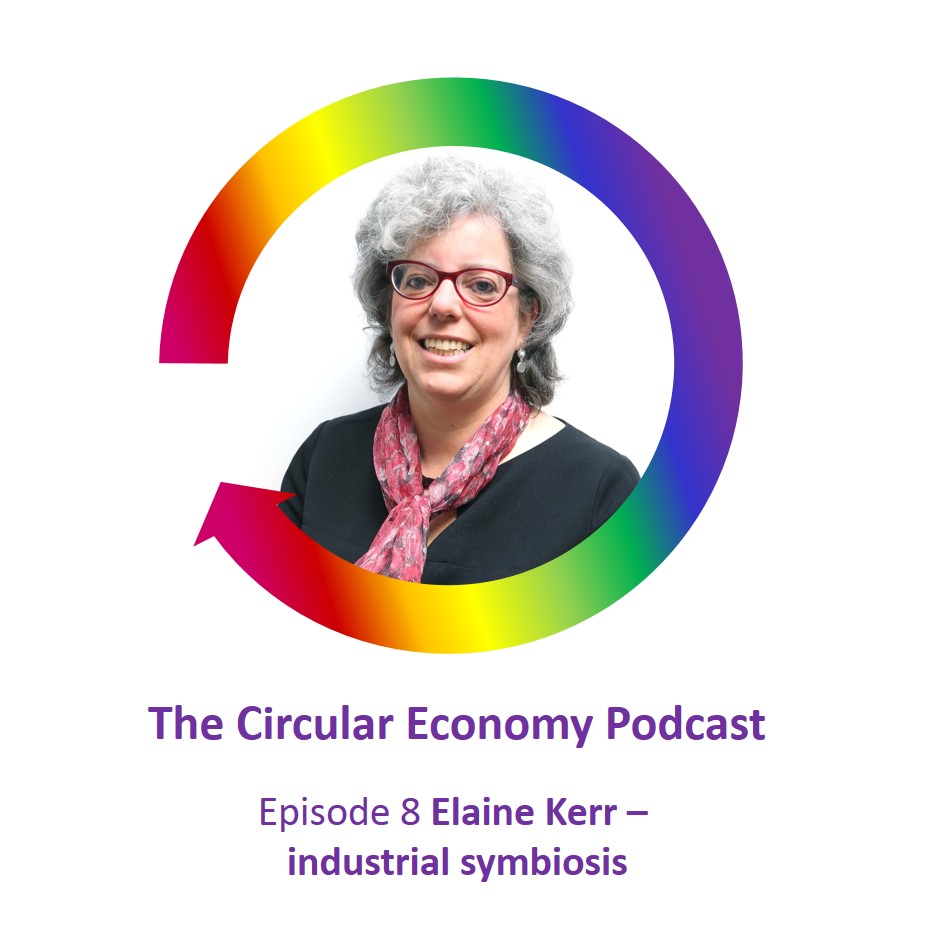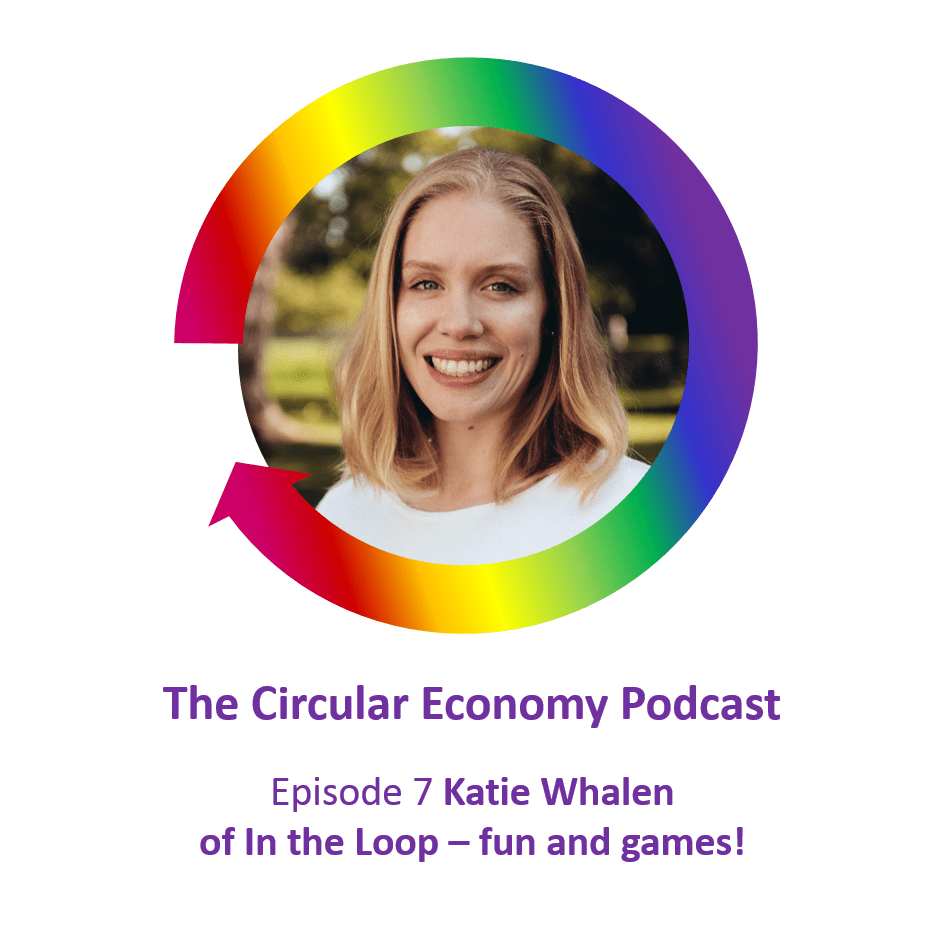Podcast: Play in new window | Download
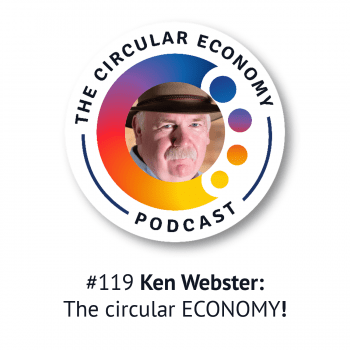
This episode is different – Ken Webster is a leading thinker in the circular economy field – we explore concepts for a critical aspect that’s being ignored – the economy itself!
Catherine says: Ken Webster is right up there as one of my circular economy heroes, and is widely acknowledged as one of the foremost thinkers in the field. From 2010 – 2018, Ken was Head of Innovation for the Ellen MacArthur Foundation, shaping current concepts of a ‘circular economy’.. Ken also co-wrote the book that first opened my eyes to the circular economy back in 2011 – Sense and Sustainability, co-written with Craig Johnson.
One of Ken’s best-known books, The Circular Economy: A Wealth of Flows, relates the connections between systems thinking, economic and business opportunity and the transition to a circular economy.
I’m very keen to read one of Ken’s most recent books, co-written with Alex Duff. Ken and Alex use a storytelling approach based on the The Wonderful Wizard of Oz to offer a new and compelling narrative about the future direction of our economy, calling for macro-economic system redesign. It’s called The Wonderful Circles of Oz: A Circular Economy Story – you’ll find links in the shownotes.
Ken’s written several more thought-provoking works on the circular economy, including ABC+D: Creating a Regenerative Circular Economy for All – also co-written with Craig Johnson, and we mention some of these as we go along.
This was a wide-ranging conversation about system-scale issues and concepts. I tried my best to keep up with Ken’s thinking as we explored some of the big ideas he has been working on, including:
- A Universal Basic Dividend – not to be confused with UBI, or Universal Basic Income. We discuss why a Universal Basic Dividend would be a good thing, how it would be funded and where the money would flow to.
- We move onto The Commons – what that really means, and how it could be better accommodated in our modern economies, in a meaningful and sustainable way.
- Ken talks about the rentier economy, and rentiers. If you’re not familiar with that term, it’s someone who earns income from capital without working – for example by owning property or land that is rented out to tenants; by owning shares or bonds that pay dividends or interest, and so on.
- We discuss why the economy isn’t working for the vast majority of people around the world, and what’s getting in the way of an ‘economy for all’.
- We talk about some of the signals for change, with people are starting to see the potential of a future with community, connection and caring – caring for each other, and for our Mother Earth. The potential of a future that’s not all about ‘Work, Buy, Consume, Die’.
I’ve split our conversation into two parts – the 2nd part will be out next week as a bonus episode.
International speaker, author and strategic advisor, Catherine Weetman helps people discover why circular, regenerative and fair solutions are better for people, planet – and prosperity.
Catherine’s award-winning book: A Circular Economy Handbook: How to Build a More Resilient, Competitive and Sustainable Business includes lots of practical examples and tips on getting started.
Stay in touch for free insights and updates…
Read on for more on our guest and links to the people, organisations and other resources we mention.
Don’t forget, you can subscribe to the podcast series on iTunes, Google Podcasts, PlayerFM, Spotify, TuneIn, or search for “circular economy” in your favourite podcast app. Stay in touch to get free insights and updates, direct to your inbox…
You can also use our interactive, searchable podcast index to find episodes by sector, by region or by circular strategy. Plus, there is now a regular Circular Economy Podcast newsletter, so you get the latest episode show notes and links delivered to your inbox on Sunday morning, each fortnight. The newsletter includes a link to the episode page on our website, with an audio player. You can subscribe by clicking this link to update your preferences.
Links we mention in the episode:
Catherine’s work:
- Circular Economy Podcast on LinkedIn: linkedin.com/showcase/circular-economy-podcast/
- Circular Economy Podcast website: circulareconomypodcast.com
- Catherine Weetman on LinkedIn: https://www.linkedin.com/in/catherine-weetman-9419107/
- A Circular Economy Handbook: How to Build a More Resilient, Competitive and Sustainable Business – buy from any good bookseller, or direct from the publisher Kogan Page, which ships worldwide (free shipping to UK and US) https://www.koganpage.com/CircEcon2
- Interactive podcast index https://www.rethinkglobal.info/circular-economy-podcast-index/
- Rethink Global www.rethinkglobal.info
- Sign up to get the podcast player and shownotes for each new episode emailed to your inbox
Links for our guest:
- LinkedIn linkedin.com/in/ken-webster-28825110
- Email: ken@circulareconomy.co.uk
Books, people and organisations we mentioned
Some of Ken’s books:
- The Wonderful Circles of Oz: A Circular Economy Story, by Ken Webster and Alex Duff – a new and compelling narrative about the future direction of our economy, calling for macro-economic system design. https://www.routledge.com/The-Wonderful-Circles-of-Oz-A-Circular-Economy-Story/Webster-Duff/p/book/9781032109107 and https://bookshop.org/p/books/the-wonderful-circles-of-oz-a-circular-economy-story-ken-webster/18110152?ean=9781032109107
- The Circular Economy: A Wealth of Flows by Ken Webster (2nd edition) https://bookshop.org/p/books/the-circular-economy-a-wealth-of-flows-2nd-edition-revised-preface-and-conclusion-plus-additional-chapter-ken-webster/6577289?ean=9780992778460
- ABC&D by Craig Johnson and Ken Webster https://bookshop.org/p/books/abc-d-creating-a-regenerative-circular-economy-for-all-craig-johnson/17863262
People and organisations
- Earth4all – a vibrant collective of leading economic thinkers, scientists, and advocates, convened by The Club of Rome, the BI Norwegian Business School, the Potsdam Institute for Climate Impact Research and the Stockholm Resilience Centre. Building on the legacies of The Limits to Growth and the Planetary Boundaries frameworks, science is at the heart of our work. Leading scientists have developed state of the art systems dynamic models and run different scenarios for possible plausible futures. https://earth4all.life/
- Michel Bauwens and the Peer to Peer Foundation – http://p2pfoundation.net
- David Bollier – news and perspectives on the commons – https://www.bollier.org/
- Christian Felber’s book Change Everything: Creating an Economy for the Common Good https://christian-felber.at/en/books/
- Guy Standing – https://www.guystanding.com/ and a short YouTube video on rentier capitalism – The Wealth Paradox https://www.youtube.com/watch?v=dJ5gAiY5-ZY
- Massimo de Angelis, author of The Beginning of History: Value Struggles and Global Capital, and editor of The Commoner web journal, at http://commoner.org.uk.
- Elinor Ostrom – awarded the Nobel Memorial Prize in Economic Sciences in 2009 for her “analysis of economic governance, especially the commons”, which she shared with Oliver E. Williamson. https://en.wikipedia.org/wiki/Elinor_Ostrom
Guest bio
Ken Webster is a Visiting Professor at Cranfield University and a Fellow of CISL (Cambridge University Institute for Sustainability Leadership). From 2010 – end 2018 he was Head of Innovation for the Ellen MacArthur Foundation, a circular economy pioneer organization, where he helped shape current notions of a ‘circular economy’. More recently he has worked at Univ of Exeter Business School (2019-2021). Ken was awarded a DSc from Univ. of Brighton in 2023.
His book The Circular Economy: A Wealth of Flows (2nd Edition 2017) relates the connections between systems thinking, economic and business opportunity and the transition to a circular economy. He makes regular contributions to conferences and seminars around the world. His current interests include; open vs closed circular economy approaches, construction and the built environment, extended producer ownership and materials data management. Ken is on the supervisory board of the Madaster Foundation in Amsterdam – a materials passport organisation.
He contributed to the new Handbook of the Circular Economy (Eds. Alexander, Pascucci and Charnley (2023) and was a contributor and editor on Earth for All from the Club of Rome. He is a lead author on circular economy for UNEP’s GEO-7 report (in development).
A recent book with an emphasis on exploring different scales, especially in food and agriculture is ABC&D Creating a Regenerative Circular Economy for All (with Craig Johnson) (2022)
Playlist: getting started with the circular economy…
Want to know more about the what the circular economy really is, and how it can help your business? Here’s a playlist to help you get to grips with the concept, how it creates value, and the common myths (spoiler alert – it’s much more than recycling!)
- #1 What is the circular economy: A quick intro to explain what the circular economy is and why it’s important. We explore how it helps create better products and services, and at the same time helps to make a better world. I break it down into my 5 circular economy components, helping you think about each part of your business.
- #2 The linear economy and your risk checklist: We dig a bit deeper into the way we do business now, the linear economy, and why that’s creating problems for business, society and our living planet. Also, we’ll look at the risks that emerge from those big-picture issues, and how they might affect your organisation.
- #90 Does circular mean it’s sustainable? Catherine Weetman is worried that companies are using circular economy solutions to grow their business (and their footprints).
- #101 Circular is better for people, planet and profit! How three simple strategies can help you get started with circular and regenerative solutions that are better for people, planet and profit.
- #120 Priorities are changing: people find life is better when we care for and share things – circular economy strategies make that better for business, too.
And here’s Catherine’s guide: What is the circular economy?
Want to dig deeper?
Why not buy Catherine’s award-winning book, A Circular Economy Handbook: How to Build a More Resilient, Competitive and Sustainable Business. This comprehensive guide uses a bottom-up, practical approach, and includes hundreds of real examples from around the world, to help you really ‘get’ the circular economy. Even better, you’ll be inspired with ideas to make your own business more competitive, resilient and sustainable.
Please let us know what you think of the podcast – and we’d love it if you could leave us a review on iTunes, or wherever you find your podcasts. Or send us an email…
Please let us know what you think of the podcast – and we’d love it if you could leave us a review on iTunes, or wherever you find your podcasts. Or send us an email…
Podcast music
Thanks to Belinda O’Hooley and Heidi Tidow, otherwise known as the brilliant, inventive and generous folk duo, O’Hooley & Tidow for allowing me to use the instrumentals from the live version of Summat’s Brewin’ as music for the podcast. You can find the whole track (inspired by the Copper Family song “Oh Good Ale”) on their album, also called Summat’s Brewin’. Or, follow them on Twitter.
